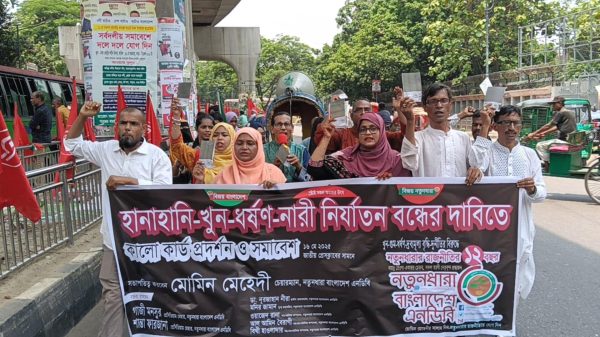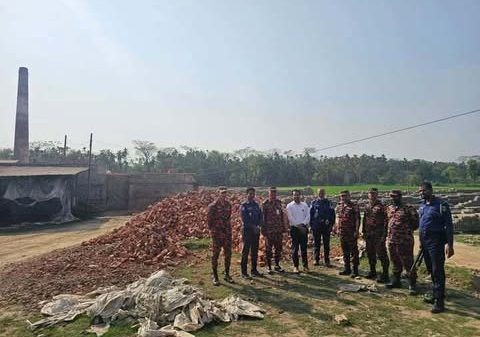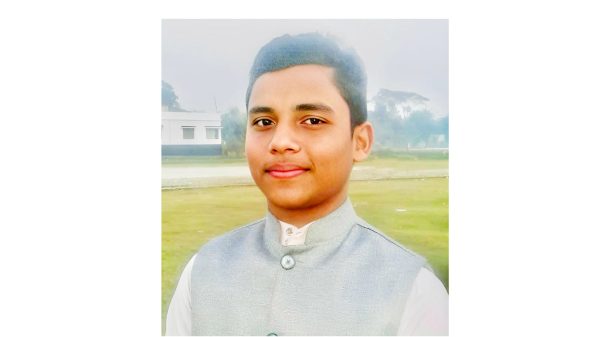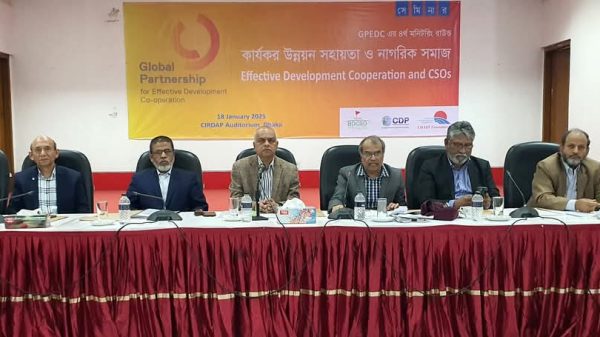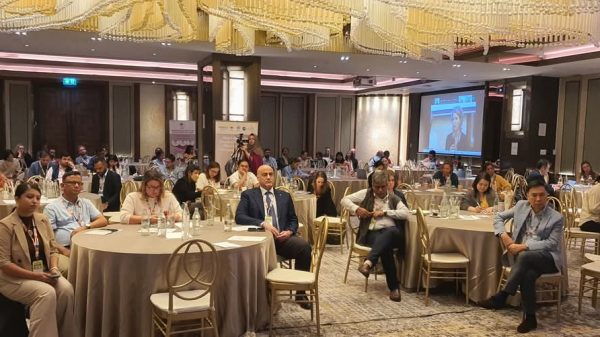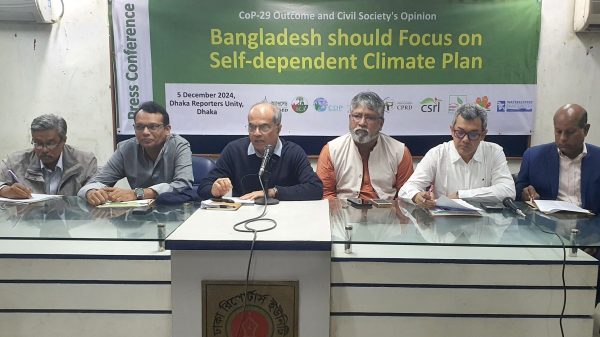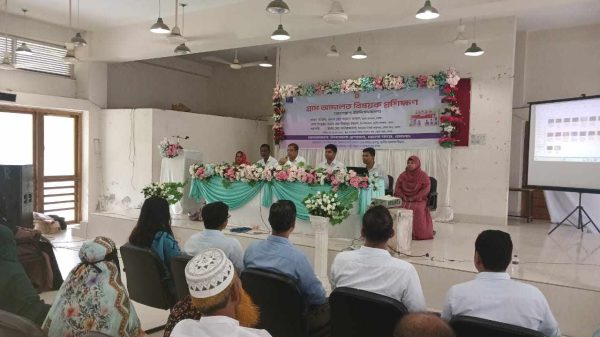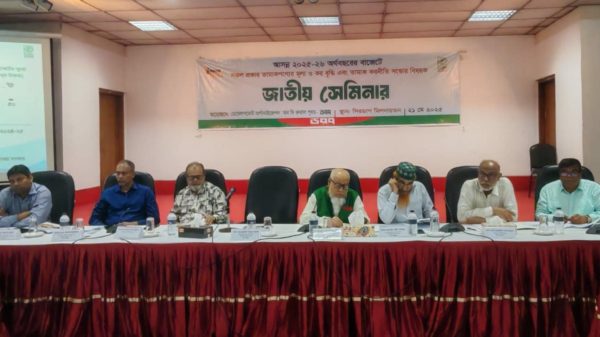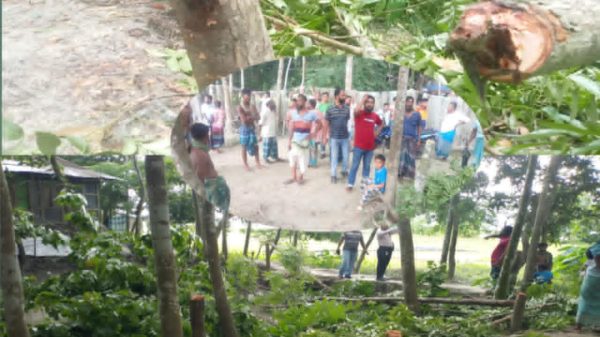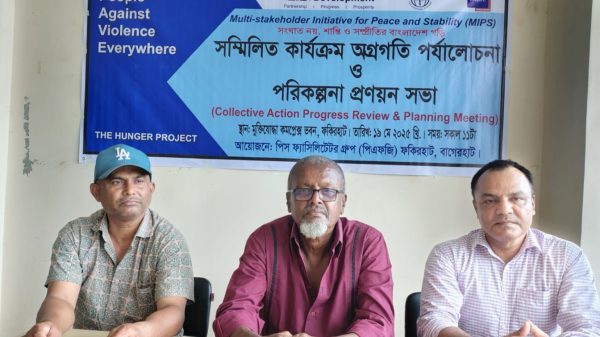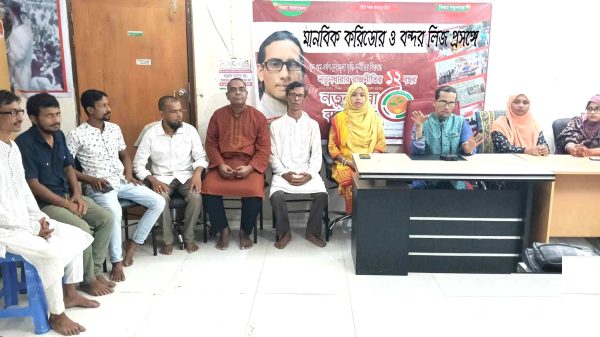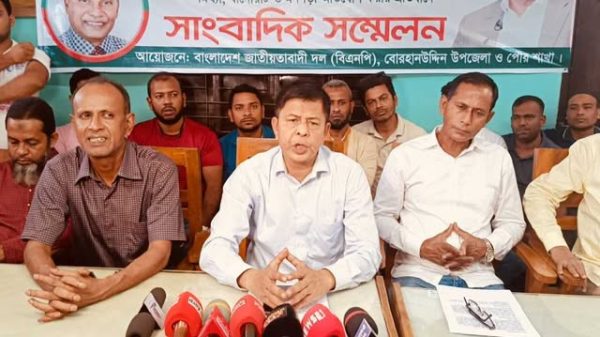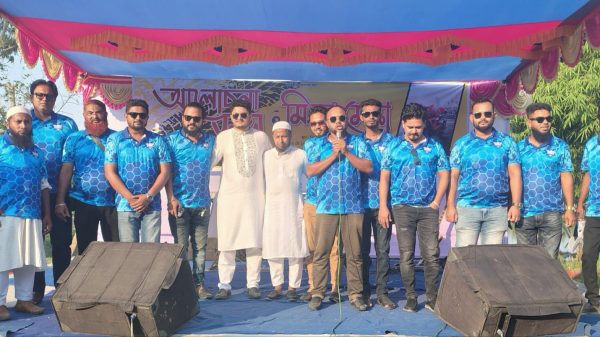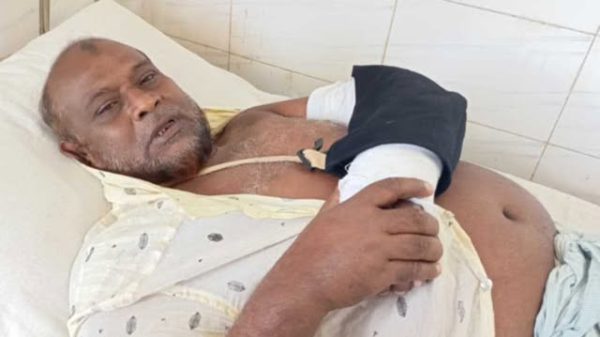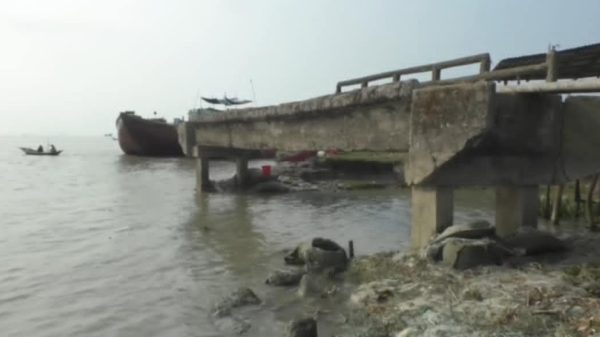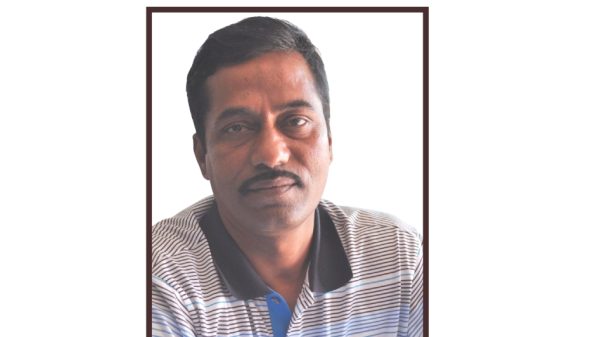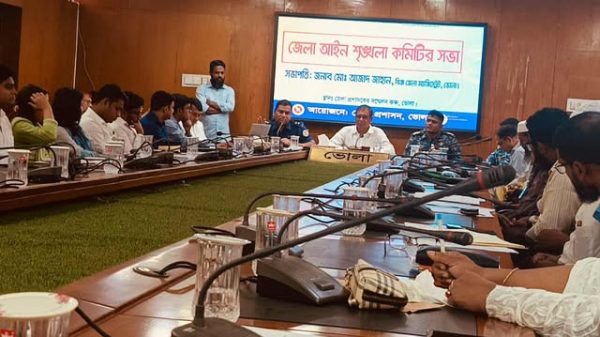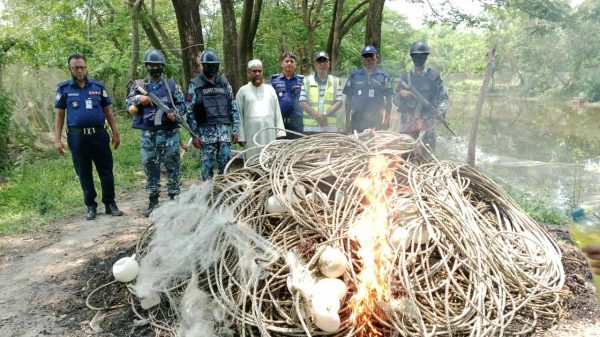study on fresh water crisis in Shyamnagar region

- আপডেট সময় : বুধবার, ১৮ ডিসেম্বর, ২০২৪
- ১৫৯ বার পঠিত
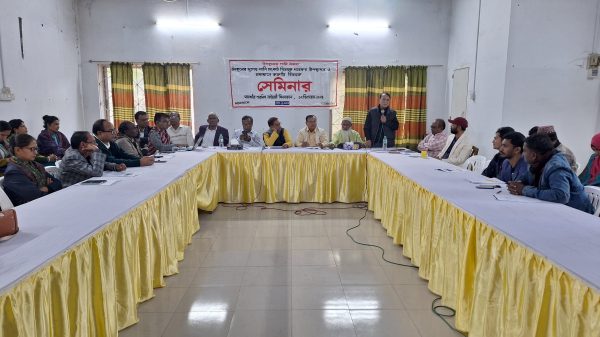
Study onfresh water crisis in Shyamnagar regionDisasterresilient reservoirs excavation for crisis mitigation recommended OurCorrespondent: A seminar washeld in Satkhira presenting a research paper on the issue of safe water crisisof Shymnagar coastal area. Researchorganization Bangladesh Resource Center for Indigenous Knowledge (BARCIK)organized this seminar on Tuesday (December 17) at Satkhira Central PublicLibrary auditorium. Journalists andresearcher Tanzir Kochi and Sultan Shahajan jointly presented the researchpaper in the seminar titled ‘Water crisis in Shymnagar Coastal area; Where isthe solution?’ According tothe research paper, due to the salinity of underground water, there is always ashortage of fresh water in Shyamnagar of Satkhira. Since the beginning of humansettlement in this region in the lap of Sundarbans, people have been engaged inthe struggle to collect fresh water. The kings of the time, later landlords andrich people took initiative to dig ponds, dighi or wells to alleviate theshortage of fresh water or to save lives. Since the beginning of settlementtill now, the main source of livelihood of the people of Shyamnagar region iswater from ponds. But due to climate change, frequent natural disasters in thecoastal region, increase in salinity, unplanned expansion of brackish watershrimp farming area, non-renovation of ponds and dams, non-digging of new pondsand dams as required, fresh water crisis has become evident in Shyamnagarregion. Various initiatives have been taken and implemented at the governmentand private levels to eliminate this crisis. But there is no sustainablesolution to the fresh water crisis. Instead, new crises have arisen aroundthese initiatives.In order tosolve the problem of fresh water, public and private initiatives are beingcarried out by setting up or renovating PSF, distributing tanks for rainwaterstorage, setting up reverse osmosis plants etc. But due to various reasons,modern technology is not able to successfully play a role in solving the freshwater crisis. At the sametime, agriculture in Shyamnagar region is having a serious negative impact dueto the reduction of freshwater sources. For this, agricultural land is beingconverted into brackish water zones under the influence of salinity. Cropproduction is decreasing. Farmers’ costs are increasing. People are turningaway from agriculture day by day. Losing a job. Cultivation is not done inother seasons except monsoon season. The financial loss is increasing.Biodiversity is disappearing. Ecosystems are being damaged. Native fish aredisappearing. Fruit trees are declining. Cattle are decreasing. Snails, Ketchos,Jokes, Frogs are disappearing from nature. Malnutritionhas increased in Shyamnagar region due to loss of plant-food diversity.Employment has declined. People are forced to change profession. Increasedwaterborne skin diseases, night blindness, diarrhea, dysentery. Menstrualproblems of women have become prominent. In a word, health risks areincreasing. Along with this, medical expenses are also increasing. The pond is thelast hope of the people of Shyamnagar to solve the shortage of fresh water. Butapart from natural calamities and river erosion, unplanned shrimp farming andlack of out-drain in fishponds, brackish water in the ponds is making the freshwater ponds salty. Many ponds have not been renovated for a long time, there isa lot of neglect. Many are in the process of being filled, some are messed up.Many are occupied by influential people and are cultivating fish. There is alack of oversight as these PSFs or ponds are maintained by active committees. The study makessome recommendations to solve the potable water crisis in the Shyamnagarcoastal region. Such as Big ponds or reservoirs should be dug, preserved andmaintained in every village. Ponds or reservoirs must be disaster resilient.The ponds should not be inundated with flood water; Therefore, the embankmentmust be of the required height, width and must be strong. The maintenance andmanagement of existing and newly dug ponds or reservoirs should involve thelocal community under the leadership of the local government. For this, thelocal government should allocate necessary funds. Local communities should beencouraged to dig more ponds and discourage filling them. Unplanned saltwatershrimp farming should be stopped and shrimp farming should be enforcedaccording to policy and zoning system should be introduced for saltwater fishfarming. Effective out drains must be made mandatory in shrimp farming. So thatthe water from the boundary cannot seep into the adjacent ponds or agriculturalland. The cannels those were leased should be declared as the reasons forwaterlogging in the upazila and these lease should be canceled. Cannels shouldbe opened for the local people for agricultural uses and reserving rain water.Restrictions should be made to bring salt water in these cannels for any kindof business purposes. Coastal embankments should be made durable andstrong. Majority of the money allocatedto solve the fresh water crisis should be spent on digging, renovating andmaintaining ponds or reservoirs. The seminar waspresided by Azad Hossain Belal, convenor of Satkhira Zilla Nagorik Committee. Prominentpolitician Kamrul Islam Faruk, Professor Mozammel Hossain, Journalist GourangoNandi, civic leader Abul Kalam Azad, Human rights activist Professor PabritMohan Das, Henri Sardar, Madhav Chandra Dutta, Ali Noor Khan Babul, journalistM Kamruzzaman, Sharifullah Kaisar Sumon, Asaduzzaman, Golam Sarwar, Gazi AlImran speak among others.

